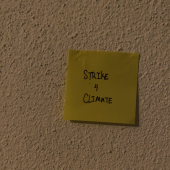
Abstract: This editorial discusses the intersection of environmental and racial justice and how the movement has failed to center voices most affected by climate change.
Continue ReadingAbstract: The field of media education, emerging within the instrumental vision of modernity, has largely ignored its unspoken modernist assumptions. In this article, we argue the time has come to fully engage an embodied view of media from an evolutionary, ecological perspective—what we might call ecological modernism. This is a perspective that views media as evolving mediations through various material/technical practices, where body knowledge, rather than some idea of objective reality, is understood as the empirical ground for how we come to make sense of ourselves and the world. The focus is then shifted from the problem of subject versus object relationships to how subjects and objects are mutually constitutive. By extension, the juxtaposition of the concept of citizen with the body clarifies yet another crucial dimension of the embodied perspective. Two examples of “citizen”-based media education projects are briefly reviewed from this ecological modernist perspective in order to consider the implications of resituating grounded citizen-oriented media education.
Continue Reading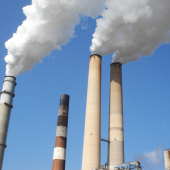
Abstract: The shift away from coal to renewable energy for electricity generation is producing environmental benefits during the climate crisis but also poses uncertainty for coal producers and others along the coal supply chain. Media representations of the coal debate shape how citizens understand and respond to it. This commentary exposes how audiences – even of pro-environmental media – reproduce dominant discourses promoted by fossil fuel corporations and reconceptualize those discourses into a Not in my Backyard (NIMBY) worldview. Critical discourse analysis helps to reveal how tensions between coal companies and renewable energy proponents are exacerbated by controlled coal messaging. Coal propaganda evokes images of a noble and reasonable energy source and places coal within a positive framework that enhances local knowledge, protection, and economic security. Conclusions point to the importance of media literacy instruction as a means for consumers to gain critical distancing strategies and broader perspectives about the climate crisis.
Continue Reading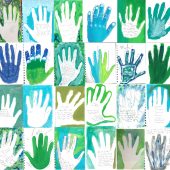
Link to the JSE April 2020 Ecomedia Literacy Issue Table of Contents Lopez Ecomedia JSE April 2020 Ecomedia Literacy PDF Abstract: Media is an ambiguous metaphor that changes meaning depending on how it’s used by educators. Typically media are only characterized by how they represent reality and communicate ideas. Consequently, the metaphor assumes a […]
Continue Reading
Transformative sustainable pedagogy and public intellectual work share the same aims and guideposts, including upholding higher education’s foundational intentions of fostering moral character in tomorrow’s leaders. Radical modes of sustainable education, including regenerative pedagogy, which tends to the global shift to restore, respect, and regenerate ecological and societal balance, and inside-out pedagogy, which helps learners take their inner seeds, sprouts, and blossoms of good ecocultural intentions to stages of external fruition, speak both to educating learners and engaging the public. If pedagogues aim to encourage students to put beliefs into action and be leading voices in ethically addressing today’s pressing environment and society problems, this may require role modeling by having the courage to do so themselves. In these contexts, the author relates her own experiences speaking for Extinction Rebellion as an illustration of expanding notions of what it means to be a sustainability educator today.
Continue ReadingThis editorial overview provides an introduction to this special Journal of Sustainability (JSE) issue devoted to water and climate change, which is being released during United Nations World Water Day 2020. The article contextualizes some of the water security risks that are exacerbated by climate change, such as increasing floods and droughts. This piece further provides a brief overview of the articles in the special water and climate issue of the JSE.
Continue ReadingAbstract: Decolonization is a multifaceted and complex process, involving a wide range of concepts, including the restoration of Indigenous lands to Indigenous control, improved recognition of tribal sovereignty, strengthening of Indigenous worldviews and knowledge traditions, cultivating cultural responsiveness in education and health care, aligning research methods with Indigenous cultural priorities and values, and more.
This special issue of the Journal of Sustainability Education on the topic of Decolonization and Sustainability Education reflects many of these diverse projects. The issue is inclusive of Indigenous and allied voices, of academic and Indigenous discourses, of large-scale political actions and—what Jeff Corntassel calls—“everyday acts of resurgence.” The selections are arranged in ways that center Indigenous voices and the work on the ground that reinforces Indigenous sustainabilities and Indigenous-centered pedagogies.
Continue Reading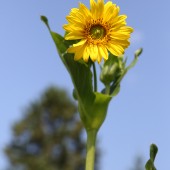
Kelly JSE March 2017 Future Casting Issue This time of year I am always itching to break ground on a new vegetable garden—one that will overflow with juicy strawberries and blueberries; bright green spinach, kale, and broccoli; plump peas, pumpkin and potatoes; all varieties of peppers, onions, tomatoes, beans and squash to please any palate; […]
Continue Reading
Just as place scholarship reaches across and through many disciplines, so this issue ranges widely, including 14 scholarly features as well as media reviews, case studies, photo and poetic essays, and sustainability journeys. Disciplinary lenses include the arts, sociology, philosophy, natural resource management, sports science, and archaeology, among others.
Continue Reading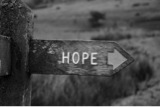
Abstract: The concept of hope is rich in context, and working with it from different angles can enhance inner resources. Framing hope as a process offers tools for sustainability educators: subjective exploration, empathy development, critical thinking, and civic engagement.
Continue Reading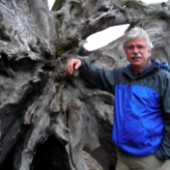
Abstract: Development of a sustainable relationship with our natural resources is an imperative for any meaningful quality of life as climate change poses the ultimate test of our adaptability as a species. The consequences of failing to respond will be catastrophic and irrevocable over a millennial time scale. During the environmental century, higher education has an ethical imperative to provide the foundation of a sustainable civilization. Higher education is broadly failing to meet this mandate. Most existing programs in environmental and sustainability science and studies provide inadequate training and lack budgetary autonomy equivalent to established academic units. Although many universities define sustainability through operational activities, the primary purpose of higher education is not operational sustainability — it is teaching, learning, scholarship, and outreach. Developing the capacity for proactive adaptation will require us to examine how we conduct teaching and research across the spectrum of higher education institutions. Education and research for proactive adaptation to rapid ecological change affecting human and natural systems is necessary if we are to produce holistic managers to conserve our natural heritage. All undergraduates should acquire basic ecological and sustainability literacy. Teaching, learning, and scholarship for sustainability must become the highest priority in higher education. Collectively, faculty have the power to implement these reforms.
Continue Reading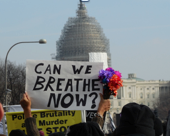
Abstract: Writing an essay about hope in these times feels like an indulgence of privilege. Still, with full awareness of the implications, I want to insist that we not lose hope, that we make it meaningful, and that we go so far as to make its cultivation a central focus of our lives and work. This essay is intended to serve as a calling card for like-minded inquirers to reach out across time and space, to find ourselves and one another in the engaged optimism of meaningful work in the world, and as an acknowledgment of appreciation for all of those who do so.
Continue Reading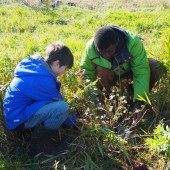
Table of Contents: JSE March 2015 — Sustainability: What’s Love Got to Do with It? PDF: Charles JSE March 2015 Love Issue There is a terrible challenge facing all of us who worry about the future of the Earth, and its inhabitants—human, domesticated and wild. That includes all of its living ecological inhabitants, and the […]
Continue Reading
The stories we tell shape our view of ourselves and the path we take through this time of collective awakening and global turning. We have the ability to consciously choose narratives that offer realistic beacons of hope to guide our way through the Great Transition. To achieve authentic and lasting reconciliation as the foundation for our future, we require the power of love and compassion as a practical basis for organizing human affairs.
Continue ReadingWith this unthemed issue and its impressive international scope, JSE enters its sixth year and shows its stretch across the continents.
Continue ReadingDear JSE….viewers? ……visitors? ….interactors?… Well, we know “readers” doesn’t work anymore, and, what I believe will come to be known as the “landmark” issue of JSE, finally fulfills that promise, as we enter into a new world of asking our audience to interact with a rich and, we hope, game-changing content in this, our “State […]
Continue ReadingPDF: Jaimie Cloud JSE May 2014 “The test of a first-rate intelligence is the ability to hold two opposing ideas in mind at the same time and still retain the ability to function. One should, for example, be able to see that things are hopeless yet be determined to make them otherwise.” F. Scott Fitzgerald […]
Continue Reading
I wouldn’t want to try and mimic the elegant, eloquent and erudite arguments that every one of our authors makes for the unsurpassable power of experience in the educational process. In my own discipline, the Biological Sciences, I need look no further than the unstoppable force of the teaching laboratory, to know this truth. How do we get people to change, to do the right thing, to quit smoking, to wear seat belts, to learn something as complicated as heart surgery or sequencing DNA. How do we teach people to become outstanding members of society concerned about improving everyone’s quality of life: we can try teaching it a million different ways, but until they actually do it, the change has yet to happen!
Continue Reading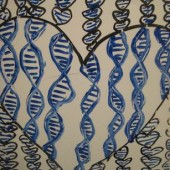
Rick Medrick, one of the Guest Editors for this issue of JSE, puts out the call to “take back” our educational process to its origins, where, as beings of the earth, we experience things first and foremost as a way of finding out the truth and the beauty of the natural world. From those roots, he argues, we are sure to find our way to a sustainable future.
Continue Reading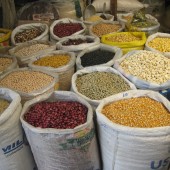
I have a confession to make. Three years ago, when I took on this revered post as editor of the soon-to-be-inaugurated Journal of Sustainability Education, I wasn’t too sure what, if anything, “sustainability” was. Not that I hadn’t spent the better part of a decade thinking about it, listening to what others had to say about it, […]
Continue Reading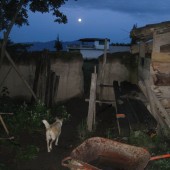
When we began down the road to making this edition of JSE, we had mapped out a route, but knew not where the journey would take us. With proofs in galley, we face V.S. Naipaul’s “Enigma of Arrival, knowing that the larger journey has only just begun. However, if a lesson has emerged from these pages (screens?), it is the power of geographic metaphor for guiding our thoughts and actions regarding sustainability. Geography, as the environmental science “par excellence” assimilates every aspect of who we are, and the spaces that we inhabit, providing a powerfully rooted blueprint for teaching and learning about sustainability. The connection between geography and sustainability is strong.
Continue Reading